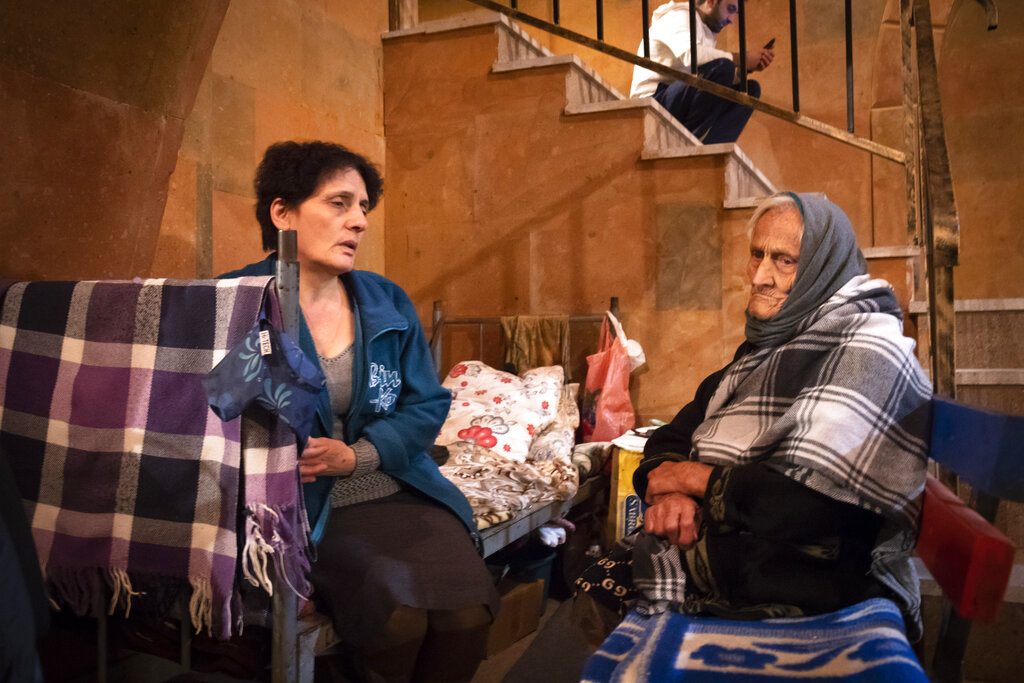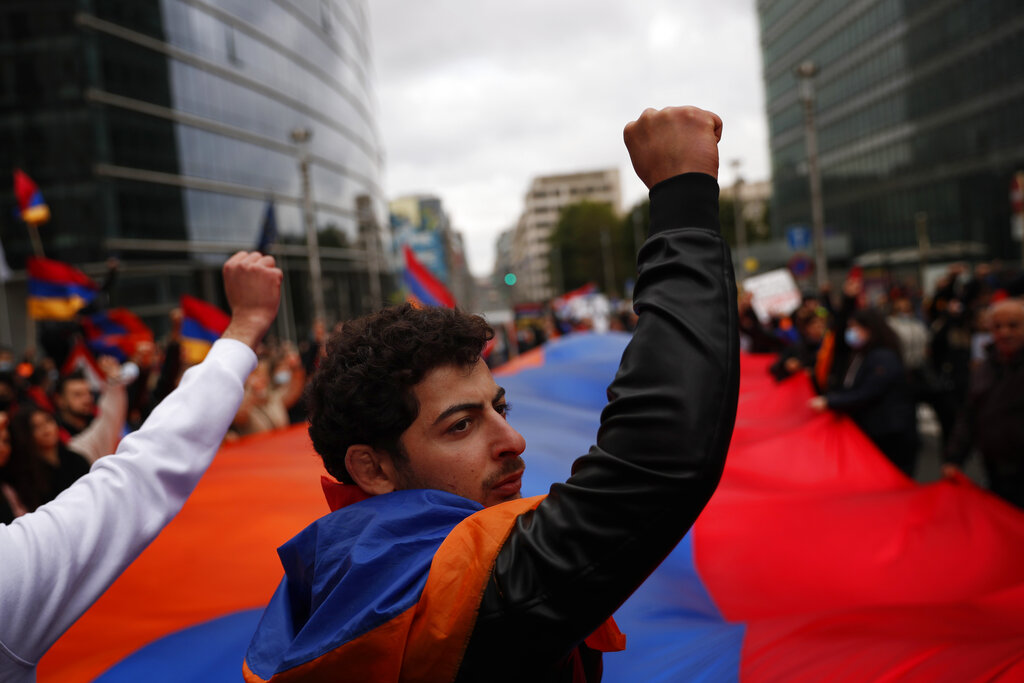JERUSALEM, Israel – On September 27th, war broke out between the nations of Armenia and Azerbaijan. The conflict re-ignited a decades-old dispute over a region called Nagorno-Karabakh. Azerbaijan claims the area but most of those who live there are Armenian. While this is a small conflict now, some warn it could get bigger.
Now in its second week, the conflict has seen thousands of refugees flee and others seek shelter inside the war zone.

“Bombing …buildings and houses are destroyed. We are so afraid of it. How can one stand it? How long will it last?” said one resident of Nagorno-Karabakh’s capital of Stepanakert.
The area of Nagorno-Karabakh is sandwiched between Armenia and Azerbaijan. When the Soviet Union fell in 1991, this self-governed region of Azerbaijan voted to join Armenia. Shortly after, growing tension between Christian Armenians and mostly Muslim Azeris led to war. An estimated 30,000 died in that three-year conflict.
At the end of the war, Armenian forces controlled Nagorno-Karabakh but the international community recognized the area to still be a part of Azerbaijan. It’s been an unresolved conflict to this day.
Both nations blamed the other at the United Nations for starting the war.
Many Armenians see the current conflict through the lens of 1915 Armenian Genocide when Turkey slaughtered 1.5 million Armenians.
“It is absolutely not inflammatory language when I say that this is Turkey’s policy to continue the Armenian Genocide,” said Armenian Prime Minister Nikol Pashinian. “Let us look at what Turkey is implementing in the Mediterranean, in Libya, in Syria, Iraq. To me, there is no doubt that this is a policy of continuing the Armenian Genocide and a policy of reinstating the Turkish empire.”
Family Research Council Senior Fellow Lela Gilbert told CBN’s Gary Lane it’s more than a territorial dispute.
“It is definitely a religious conflict and one of the things that it’s very hard to find in the secular media is that’s the reason. It’s usually referred to as ethnic or territorial, but it is clearly religious and at this point, Turkey has jumped in with mercenaries, actually, jihadis and this is making it all the more volatile,” said Gilbert. “His agenda is a neo-Ottoman empire as far as anyone can tell with him as the caliph.”
Turkey’s President Recep Tayyip Erdogan says he will stand by Azerbaijan.
”The brotherly Azerbaijani state has started a major offensive to defend its own lands and to liberate Nagorno-Karabakh which is under occupation,” said Erdogan. “The Azerbaijani army which is advancing successfully on the front, has liberated many places. With all our capability and all our heart, we will continue to be by Azerbaijan’s side.”
French President Emmanuel Macron accused Turkey of sending Syrian jihadists to fight alongside the Azeri army – a claim Turkey and Azerbaijan deny. International human rights advocate Baroness Caroline Cox reported air operations for Azerbaijan including the use of drones are now under Turkish control. CBN News has learned several European parliaments have discussed telling Ankara they will not come to Turkey’s aid as a NATO member in this conflict and are urging the US to do the same.
The UN, Russia and the US have called for a ceasefire but Azerbaijan says it will be conditional on Armenia’s withdrawal from Nagorno-Karabakh.
Armenia declared itself a Christian nation in the year 301 and many Armenians see this as a struggle for their survival, with nowhere to turn to but to God.
“It goes back to the third century to the time of Saint Gregory when he brought Christianity,” said Mission Eurasia President Sergey Rakhuba.
Rakhuba works in the region and is calling on intercessors to contend for the spiritual destiny of Armenia.
“I’m speaking on behalf of the Christian nation of Armenia and challenging the entire Christian family around the world to pray, to support, to remember them when they are trying to defend their sovereign territory in their nation now,” he said.
In the meantime, the fighting rages on.


